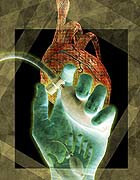
WEDNESDAY, March 2 (HealthDay News) — Early adolescence is the time that patients with congenital heart disease should start preparing for the move from pediatric to adult medical care, says a new American Heart Association scientific statement.
Congenital heart disease, which occurs before birth, is the most common type of birth defect. Most of these heart disorders are relatively mild and treatable.
The majority of children born with a congenital heart defect survive into adulthood and live normal lives, but many require specialized and ongoing medical treatment.
That’s why a smooth transition from pediatric to adult medical care is so important and needs to be a joint effort between the doctor (usually a pediatric heart specialist), the patient and the patient’s family.
The transition should begin when the patient is 12 to 14 years old, according to the scientific statement, released Feb. 28.
“It’s not as simple as getting the name of a new doctor and going to see them when a patient turns 18,” Dr. Craig Sable, co-chair of the statement committee and director of echocardiography and cardiology fellowship training at George Washington University Medical School in Washington, D.C., said in an American Heart Association news release.
“There are multiple steps associated with the transition process that need to be started at a very young age, so that by the time these children become adults the process is well under way,” Craig explained.
The statement outlines a number of critical steps in the transition process:
- Select an adult care physician to provide and coordinate comprehensive care
- Offer reproductive, genetic and career counseling
- Obtain health insurance
- Educate adult care health providers about congenital heart disease
- Maintain communication between patients, families and health care providers.
The statement appears in the journal Circulation.
About nine of every 1,000 infants, or 36,000, are born with a heart defect annually, according to the American Heart Association.
More information
The American Academy of Family Physicians has more about congenital heart disease.

